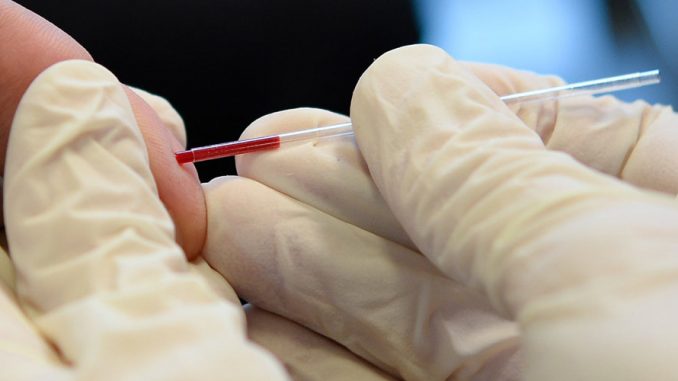
© Britta Pedersen / Global Look Press
“These super-engineered antibodies seem to go beyond the natural and could have more applications than we have imagined to date,” Prof Linda-Gail Bekker, president of the International Aids Society, was cited as saying by Silicon Republic.
“As a doctor in Africa, I feel the urgency to confirm these findings in humans as soon as possible,” she added.
10yo HIV-positive girl dies after denialist parents reportedly refused treatment for religious reasons https://t.co/W4dNA0kifs pic.twitter.com/xOhAm6Q2vW
— RT (@RT_com) September 2, 2017
HIV is so resistant to treatment because of its ability to both camouflage itself in our bodies and mutate rapidly to fight off both our own natural antibodies and external treatments introduced to our systems.
However, a small minority of HIV patients develop what are known as “broadly neutralising antibodies” which are particularly adept at fighting the infection.
This latest collaboration between the US National Institutes of Health and the Paris-based pharmaceutical company Sanofi is unique in that it combines three such antibodies to form what is called a “tri-specific antibody” – essentially a superweapon in the fight against HIV. At present, the best naturally occurring antibodies target 90 percent of HIV strains.
Gary Nabel, CSO at #Sanofi co-authored an article in @sciencemagazine on #trispecific antibodies https://t.co/DH4tKwMjMJ pic.twitter.com/sYlFRswwgf
— Sanofi (@sanofi) September 22, 2017
The tri-specific antibody attacks three critical parts of the virus simultaneously, effectively eliminating any possibility of the virus mutating fast enough to fight off the antibodies.
“We’re getting 99% coverage, and getting coverage at very low concentrations of the antibody,”said Dr Gary Nabel, one of the authors of the report.
Replacing daily pills with just a few injections a year? 'Next revolution' in #HIV treatment may be looming https://t.co/XZjlp8JT9K
— RT (@RT_com) July 25, 2017
A total of 24 monkeys were first given the tri-specific antibody, before being injected with the HIV virus. None of them developed an infection.
Human trials are scheduled to begin in 2018 with a view to developing a highly effective AIDS vaccine, though the work could also be used in treatments for other diseases.
“Trispecific Abs thus constitute a platform to engage multiple therapeutic targets through a single protein, and could be applicable for diverse diseases, including infections, cancer and autoimmunity,” Nobel said.
Ref.: https://www.rt.com/news/404270-scientists-develop-anti-hiv-superweapon/
‘We are losing a dangerous race’: ‘Super malaria’ spreading rapidly in Asia

A Ministry of Public Health official holds blood test slides taken from children, who live in the Thai-Myanmar border, at a malaria clinic in the Sai Yoke district, Kanchanaburi Province October 26, 2012. © Sukree Sukplang / Reuters
The disease, most commonly transmitted by mosquitoes infected with the parasite, was first detected in Cambodia in 2008 but has now spread to the three remaining countries that make up the Eastern Greater Mekong subregion: Vietnam, Laos and Thailand.
In a letter, published in Lancet Infectious Diseases, the team studying the spread of the disease from the Oxford Tropical Medicine Research Unit in Bangkok, said the rapid spread “presents one of the greatest threats to the control and elimination of malaria.”
Adding that the fact it is mostly drug resistant is a “sinister development”.
Drug resistant Malaria? Treatment fails to cure 4 UK patients in medical first https://t.co/zZhcAL4hTg pic.twitter.com/Z2M2DgiynC
— RT America (@RT_America) January 31, 2017
“A single mutant strain of very drug-resistant malaria has now spread from western Cambodia to northeastern Thailand, southern Laos and into southern Vietnam and caused a large increase in treatment failure of patients with malaria,” letter co-author Prof. Arjen Dondorp said.
“This could result in an important increase in malaria transmission in these countries and severely jeopardize their malaria elimination efforts,” he added.
Dondrop hopes that this new evidence will be used to combat the diseases spread in the region before it becomes “close to untreatable.” His colleague, Prof Nicholas White, thinks that “we are losing a dangerous race” and that something must be done to tackle this public health emergency urgently.
Roughly 212 million people are infected with the disease each year, the majority of cases, 92 percent, are in Africa. If this super malaria strain spread to the continent the effects would be disastrous.


